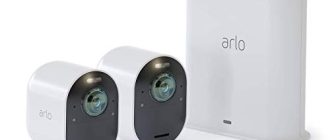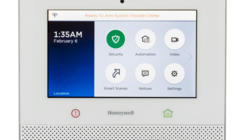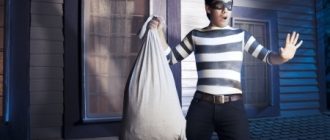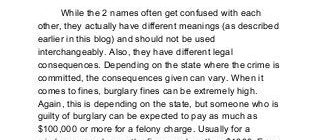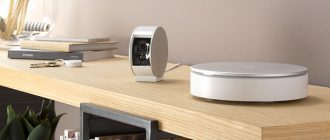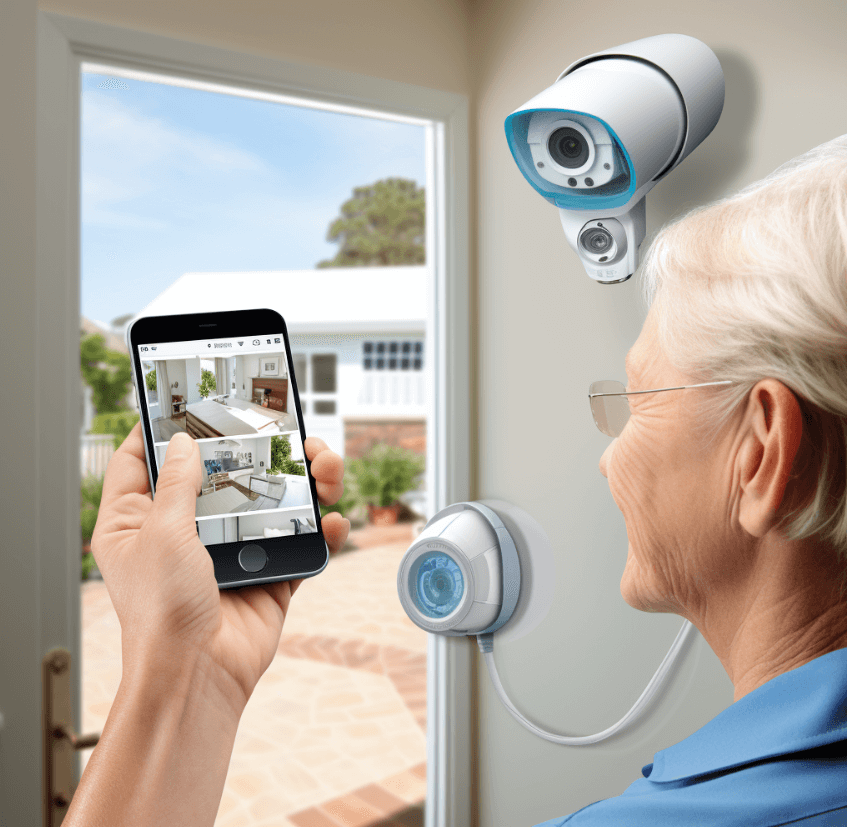
Home Security For Older People
As we age, ensuring the safety and protection of our homes becomes increasingly important. The elderly often become targets for burglaries and home invasions, making home security a top priority. Implementing various security measures and monitoring systems can provide a sense of peace and security for the elderly, allowing them to continue living independently.
One of the most effective ways to enhance home security for the elderly is through the use of alarms. Installing burglar alarms and motion detectors can alert homeowners and caregivers of any potential threats. These alarms can be programmed to automatically contact emergency services in case of an intrusion or any suspicious activity.
Moreover, having a reliable home security system can provide round-the-clock monitoring, offering an extra layer of protection. These systems can include video surveillance, door and window sensors, and even medical alert systems. By having a comprehensive security system in place, elderly individuals can feel safe and confident in their own homes, knowing that help is just a push of a button away.
Lastly, creating a secure environment involves taking simple yet effective precautions. Reinforcing doors and windows with sturdy locks and installing peepholes can deter potential intruders. It is also recommended to keep the exterior of the home well-lit and to trim any bushes or trees that might provide hiding spots for burglars. Taking these necessary steps can significantly reduce the risk of break-ins and enhance the overall safety of the home.
Overview of Home Security for Elderly
As we age, the need for protection, monitoring, and peace of mind becomes increasingly important. Providing a secure and comfortable environment for elderly individuals is essential to their well-being. Home security systems play a vital role in ensuring the safety and security of the elderly in their own homes.
Home security systems offer a wide range of features that cater specifically to the needs of the elderly. These systems include alarms, sensors, and other devices that can detect emergencies and alert the appropriate authorities. With the advancements in technology, modern security systems can also be easily controlled and monitored using smartphones and other smart devices.
The primary function of home security systems is to provide a sense of security to the elderly. Knowing that their home is protected by these systems gives them peace of mind and allows them to live comfortably. With the installation of alarms and sensors, any break-ins or suspicious activities can be detected immediately, ensuring the prompt response of the authorities.
In addition to detecting intruders, home security systems also offer other features that are beneficial for the elderly. For example, some systems have fall detection sensors that can automatically send alerts to caregivers or emergency services in the event of a fall. Medical alert systems are also available, allowing the elderly to call for medical assistance quickly and easily.
Overall, home security systems provide an essential layer of protection and peace of mind for the elderly. These systems work seamlessly to ensure the safety and well-being of the elderly in their own homes. With advanced technology and features designed specifically for their needs, home security systems offer comfort and security for the elderly and their loved ones.
Importance of Home Security for Elderly
Ensuring the safety and peace of mind of the elderly is of utmost importance. As they age, their bodies and minds become more vulnerable, making them easy targets for potential intruders or accidents. Implementing proper home security measures is crucial for providing the elderly with the protection, security, and comfort they deserve.
Home security systems and monitoring services play a vital role in safeguarding the elderly. These systems include features such as CCTV cameras, motion sensors, and panic buttons, which are installed strategically to cover every corner of the home. By having these security measures in place, any suspicious activities or intrusions can be detected and addressed promptly.
Furthermore, home security systems not only protect the elderly from potential dangers but also provide them with a sense of reassurance. Knowing that their home is equipped with advanced security technology and being able to rely on professional monitoring services brings a great sense of comfort. They can go about their daily routines without constantly worrying about their safety.
One major aspect of home security for the elderly is ensuring their physical safety. Falls and accidents are common among the elderly, and having a secure home environment can significantly reduce the risk. Simple measures like installing handrails, non-slip flooring, and adequate lighting can go a long way in preventing accidents and injuries.
Another important aspect is protecting the elderly from scams and frauds. Elderly individuals are often targeted by scammers who take advantage of their vulnerability. Home security systems can help put an end to these schemes by enabling the elderly to verify the identity of individuals before letting them into their homes. This helps prevent unauthorized access and potential financial losses.
In conclusion, home security is of utmost importance for the elderly to ensure their safety and peace of mind. The protection, security, and comfort provided by a well-equipped security system and monitoring services are crucial for the wellbeing of the elderly. With proper home security measures in place, the elderly can enjoy their homes knowing that they are protected and secure.
Assessing Vulnerabilities: Common Risks for Elderly
When it comes to ensuring the safety and peace of mind of elderly individuals in their own home, it is important to assess the common risks they may face. By identifying potential vulnerabilities, appropriate measures can be taken to provide adequate protection and comfort for this vulnerable demographic.
One common risk for elderly individuals is the potential for falls or accidents within their own home. As we age, our mobility may decline, making it more difficult to navigate through our living spaces. Installing handrails and grab bars in key areas such as bathrooms and staircases can greatly reduce the risk of falls and provide added stability.
In addition to physical risks, elderly individuals may also be more susceptible to scams or burglaries. Criminals often target the elderly due to perceived vulnerabilities. To combat this, the installation of security systems and alarms can provide an added layer of protection. These systems can deter potential intruders and alert both the elderly individual and a monitoring service in case of an emergency.
Furthermore, ensuring proper lighting both inside and outside the home is crucial for the safety of elderly residents. Well-lit areas can help prevent accidents and deter potential burglars. Motion-sensor lights can be particularly effective in this regard, as they provide instant illumination when someone approaches the home.
Another vulnerability to consider is fire safety. Elderly individuals may be more prone to forgetfulness or difficulties with certain tasks, such as extinguishing candles or turning off the stove. Installing smoke detectors and fire extinguishers in strategic locations throughout the home can greatly reduce the risk of fire-related incidents.
Overall, by assessing these common risks and taking appropriate measures, the safety and security of elderly individuals can be significantly enhanced. Creating a home environment that is well-equipped with the necessary protection and monitoring systems provides peace of mind for both the elderly individual and their loved ones.
Creating a Safe Environment: Home Modifications
When it comes to the safety and well-being of elderly individuals, creating a safe environment is essential. Home modifications can provide the necessary protection, comfort, and peace of mind for the elderly to live independently and securely in their own homes.
One of the key aspects of creating a safe environment is ensuring proper monitoring systems are in place. Installing a home security system can help deter potential intruders and provide peace of mind to the elderly. These systems often include alarms and cameras that can be monitored remotely, giving the elderly individual the ability to keep an eye on their home even when they’re away.
In addition to monitoring systems, there are a variety of home modifications that can be made to enhance safety. For example, installing grab bars in bathrooms and showers can help prevent falls and provide stability for elderly individuals. Non-slip flooring in high-risk areas such as the kitchen and bathroom can also help reduce the risk of accidents.
Modifying the lighting in a home is another important consideration. Ensuring that all areas of the home are well-lit can help prevent accidents and provide a sense of security for the elderly. Installing motion-sensor lights in hallways and staircases can be particularly beneficial, as they automatically turn on when someone enters the area.
Furthermore, creating a safe environment for the elderly includes making changes to the layout of the home. Removing tripping hazards such as area rugs or clutter can greatly reduce the risk of falls. Rearranging furniture to create clear pathways and ensuring that electrical cords are safely tucked away can also contribute to the overall safety of the home.
Home ModificationsBenefits
| Installing grab bars in bathrooms and showers | Prevents falls and provides stability |
| Using non-slip flooring in high-risk areas | Reduces the risk of accidents |
| Modifying lighting with motion-sensor lights | Prevents accidents and provides security |
| Removing tripping hazards and ensuring clear pathways | Reduces the risk of falls |
By making these home modifications, the safety and well-being of elderly individuals can be greatly improved. These changes provide a sense of security and peace of mind not only for the elderly but also for their families and caregivers.
Installing Security Systems: Alarms and CCTV
To ensure the safety, comfort, and protection of the elderly at home, it is essential to have a reliable security system in place. Installing alarms and CCTV systems can significantly enhance home security and provide peace of mind for both the elderly residents and their caregivers.
Alarms play a crucial role in alerting everyone inside and outside the property when a potential threat is detected. There are various types of alarms available, including burglar alarms, smoke alarms, and panic alarms. Burglar alarms are specifically designed to detect unauthorized entry into the home and can be equipped with motion sensors and door/window sensors. Smoke alarms, on the other hand, provide early warning in case of a fire, enabling the elderly to take immediate action. Panic alarms can be easily triggered by the elderly in case of an emergency, instantly alerting caregivers or security professionals for assistance.
CCTV systems, also known as closed-circuit television systems, are another valuable addition to home security. These systems use cameras to monitor the surroundings and can be connected to a recording device for future reference. CCTV offers real-time monitoring of the home, allowing caregivers to keep an eye on the elderly and quickly respond to any potential risks. This system provides visual evidence of any incidents that occur, which can be vital for investigations or insurance claims.
When installing security systems, it is essential to consider the specific needs and requirements of the elderly residents. Opt for alarms and CCTV systems that are user-friendly and easily accessible, allowing the elderly to operate them with ease. Additionally, ensure that the systems are regularly maintained and tested to ensure their proper functionality.
By investing in alarm and CCTV systems, caregivers can have peace of mind knowing that the elderly residents are protected and secure in their own homes. These security measures provide an added layer of safety and can help prevent potential incidents or quickly respond in case of emergencies.
Access Control Measures: Locks and Door Peepholes
In order to ensure the safety and peace of mind of elderly individuals, it is crucial to implement effective access control measures in their homes. One key aspect of this is installing high-quality locks on all doors. These locks should be sturdy and difficult to pick, providing an extra layer of protection against potential intruders.
Another important element of access control is the use of door peepholes. These small devices allow elderly individuals to monitor who is at their door before opening it. By using a peephole, they can verify the identity of visitors and ensure that they feel comfortable before granting access to their home.
Additionally, it is advisable to equip the home with a monitoring system. This can include alarms and cameras that provide continuous surveillance and alerts in the event of any suspicious activity. By having a monitoring system in place, elderly individuals can have peace of mind knowing that their home is being protected at all times.
Overall, implementing effective access control measures such as locks, door peepholes, and monitoring systems is essential for the safety and comfort of elderly individuals in their homes. These measures provide an extra level of protection and peace of mind, allowing them to feel secure in their own living space.
Fire Safety: Smoke Detectors and Emergency Plans
When it comes to ensuring the safety and peace of mind of elderly individuals in their homes, fire safety is a critical aspect that should not be overlooked. Having proper monitoring systems and emergency plans in place can provide the necessary protection and comfort to prevent potential disasters.
One of the key components of fire safety is the installation of smoke detectors throughout the house. These devices are designed to detect the presence of smoke and provide early warnings in case of a fire. It is important to ensure that smoke detectors are placed in strategic locations, such as bedrooms, hallways, and living areas, to ensure maximum coverage.
Regular monitoring and testing of smoke detectors is essential to ensure that they are in good working condition. The batteries should be checked and replaced regularly to avoid any malfunctions. Investing in smoke detectors that are interconnected can provide even greater security, as all alarms will sound simultaneously when one detector is triggered.
In addition to smoke detectors, it is crucial to have a well-defined emergency plan in place. This plan should include clear instructions on what to do in case of a fire, such as evacuation routes, meeting points outside the house, and a designated person to call for help. It is important to regularly practice the emergency plan so that everyone in the household, including the elderly individuals, knows what to do in an actual emergency situation.
For elderly individuals with mobility issues or limited mobility, additional precautions should be taken into consideration. This may include installing fire-resistant doors and windows, providing accessible fire extinguishers, and ensuring that emergency exit routes are easily navigable for them.
Fire safety is a crucial aspect of home security for the elderly. By implementing proper monitoring systems, such as smoke detectors, and having a well-defined emergency plan in place, their safety and peace of mind can be ensured. Regular maintenance and testing of smoke detectors, along with practicing the emergency plan, are essential to ensure maximum effectiveness in the event of a fire.
Emergency Button Systems: Getting Help in Times of Need
For the elderly, ensuring peace of mind and feeling safe at home is of utmost importance. One of the key ways to achieve this is through the use of emergency button systems. These systems provide a simple yet effective solution for obtaining help in times of need.
Emergency button systems are designed to offer a sense of security and protection to the elderly, especially when they are alone at home. These systems typically consist of a wearable device, such as a pendant or wristband, equipped with a button that can be easily pressed in case of an emergency. When the button is pressed, a signal is sent to a monitoring center or a designated contact, alerting them of the situation.
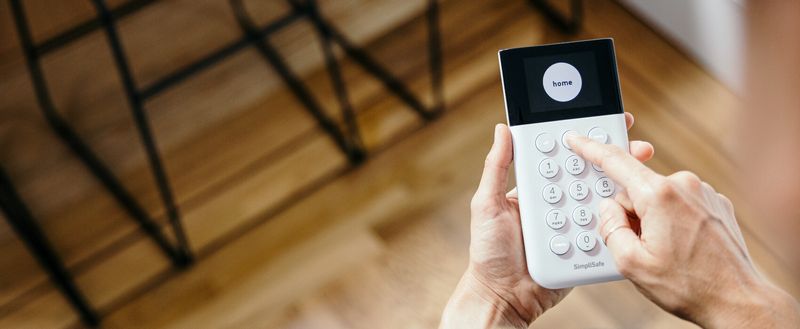
These systems are beneficial because they provide a quick and reliable way for the elderly to call for help. Whether it’s a medical emergency, a fall, or any other situation that requires immediate assistance, the emergency button system ensures that help is just a button press away. This can be particularly important for elderly individuals who may have difficulty reaching a phone or contacting someone for help.
Another advantage of emergency button systems is that they offer a sense of independence and autonomy to the elderly. With these systems in place, they can confidently go about their daily activities, knowing that help is readily available if needed. This can help alleviate anxiety and promote overall well-being.
In addition to providing peace of mind for the elderly, emergency button systems also benefit their family members and caregivers. Knowing that their loved ones have access to help at any time gives them reassurance and confidence. They can have peace of mind knowing that their elderly family members are protected and their needs are being taken care of.
Finally, emergency button systems often come equipped with additional features such as fall detection and alarms. Fall detection sensors can automatically trigger an alert if the system detects a fall, ensuring that help is dispatched even if the individual is unable to press the button themselves. Alarms can also be set up to alert the elderly and those around them of potential dangers, such as a fire or break-in.
In conclusion, emergency button systems play a crucial role in ensuring the safety and well-being of the elderly. These systems provide a simple and effective way for them to obtain help in times of need, offering peace of mind and a sense of security. With the ability to quickly and reliably call for assistance, the elderly can confidently age in place and maintain their independence.
Personal Safety Tips: Self-Defense and Awareness
When it comes to personal safety, it is important to prioritize comfort and peace of mind. For the elderly, this means taking proactive steps to ensure their own security. This can be achieved through self-defense and increased awareness of potential dangers.
One effective way to enhance personal safety is by monitoring the home environment. Installing security cameras and alarms can provide an extra layer of protection, allowing the elderly to feel more secure within their own homes. These devices can alert homeowners to any suspicious activity, helping to deter potential intruders.
Equally important is self-defense training. Learning basic self-defense techniques can empower the elderly to protect themselves in case of an emergency. By acquiring self-defense skills, elderly individuals can gain confidence in their ability to defend themselves, ultimately providing them with a greater sense of security.
In addition to physical self-defense, awareness is crucial. Encourage the elderly to be mindful of their surroundings, both inside and outside the home. This includes being cautious of strangers, avoiding isolated areas at night, and keeping doors and windows locked at all times. By cultivating a sense of awareness, elderly individuals can stay one step ahead of potential threats.
In conclusion, personal safety is of utmost importance, regardless of age. By implementing self-defense techniques and increasing awareness, the elderly can take proactive measures to ensure their own safety and peace of mind. Remember, it is never too late to prioritize personal security and take steps to protect oneself.
Building a Support Network: Neighbors and Family
When it comes to ensuring the comfort, protection, and monitoring of the elderly in their own homes, establishing a strong support network is crucial. Neighbors and family members can play a vital role in enhancing home safety and providing a sense of security for the elderly.
Neighbors: Building a good relationship with neighbors can be a valuable asset when it comes to home security for the elderly. Informing trusted neighbors about the elderly person’s living situation can help create a sense of community and provide an extra layer of protection. Neighbors who are aware of the elderly person’s routines and habits can be more observant and vigilant, reporting any unusual activities or individuals around the home.
Family: Family members are often the first line of defense in ensuring the safety of elderly loved ones. Regular communication and visits to the elderly person’s home can serve as a source of comfort and reassurance. Additionally, family members can help address any vulnerabilities or weaknesses in the home security system. They can assist in installing alarms, cameras, and other security features, as well as providing guidance on how to use them effectively.
Monitored Alarm Systems: Another way to enhance home security for the elderly is through the use of monitored alarm systems. These systems provide an added layer of protection by connecting the home to a central monitoring station. In case of emergencies, trained professionals can promptly respond to the situation and send help if needed.
By building a support network of neighbors and family members, elderly individuals can enjoy a greater sense of safety and peace of mind in their own homes. With trusted individuals keeping an eye out for their well-being and the help of monitored alarm systems, the elderly can feel more secure and protected.
Monitoring Services: Professional Assistance and Peace of Mind
When it comes to the safety and security of elderly individuals living alone, monitoring services can provide an invaluable layer of protection and peace of mind. These services involve professional assistance, ensuring that help is always just a phone call away.
One of the key features of monitoring services is the use of alarms and sensors throughout the home. These devices can detect motion, smoke, carbon monoxide, and even floods, alerting the monitoring center to potential dangers. This immediate notification allows for swift action to be taken, minimizing the risk of harm to the elderly individual.
In addition to emergency response capabilities, monitoring services also offer comfort and reassurance to seniors. Knowing that help is readily available can alleviate anxiety and create a sense of security within the home. This peace of mind is essential for elderly individuals who may be more vulnerable to accidents or emergencies.
Monitoring services are designed to provide a comprehensive approach to home security for the elderly. This includes not only emergency response, but also regular check-ins and wellness checks. In some cases, medical monitoring can be included, allowing for the tracking of vital signs and the management of chronic conditions.
When considering monitoring services for the elderly, it is important to choose a reputable provider who offers personalized plans tailored to individual needs. These plans should take into account the specific requirements of the elderly person, providing the necessary levels of protection and support.
By implementing monitoring services, elderly individuals can remain independent in their own homes while ensuring their safety and well-being. These services provide an extra layer of protection, offering constant professional assistance and peace of mind for both the elderly person and their loved ones.
Investing in monitoring services is an investment in the comfort and security of elderly individuals. With the help of technology and professional assistance, the home can become a place of protection, ensuring that the elderly can age in place with confidence.
Scams and Fraud Prevention: Staying Aware and Informed
As the elderly population continues to rely on home security systems for their protection, it is important to also be aware of scams and frauds that may try to deceive them. Staying informed about these scams can help ensure the safety and peace of mind of the elderly.
One common scam targeting the elderly is door-to-door salespeople offering home monitoring systems or alarms. These scammers often use high-pressure tactics to convince the elderly to purchase unnecessary or overpriced products. It is important for the elderly to be cautious and verify the legitimacy of such salespeople before making any purchases.
Another scam that often targets the elderly is phone or email fraud. Scammers may pose as representatives from trusted organizations, such as banks or government agencies, and try to trick the elderly into providing personal information or making financial transactions. It is crucial for the elderly to never give out personal or financial information over the phone or email, unless they are absolutely certain of the legitimacy of the request.
To help prevent scams and frauds, it is recommended for the elderly to sign up for Do Not Call lists and register their phone numbers to avoid unwanted telemarketing calls. Additionally, they should be cautious of unsolicited emails or messages, and should never click on suspicious links or download attachments from unknown senders.
Tips to Prevent Scams and Fraud:
| 1. Be cautious of door-to-door salespeople and verify their credentials before making any purchases. |
| 2. Never disclose personal or financial information over the phone or email, unless absolutely certain of the legitimacy of the request. |
| 3. Sign up for Do Not Call lists to avoid unwanted telemarketing calls. |
| 4. Be cautious of unsolicited emails or messages, and avoid clicking on suspicious links or downloading attachments. |
By staying aware and informed about scams and frauds, the elderly can protect themselves and their homes from potential harm. It is important to remember that home security is not only about physical protection, but also about safeguarding against financial scams and frauds that can cause distress and discomfort.
Resources for Home Security: Senior-Friendly Products and Services
When it comes to ensuring the comfort, monitoring, and safety of the elderly in their own homes, there are many senior-friendly resources available. From alarms to specialized services, these resources can provide peace of mind for both the elderly and their loved ones.
One of the most common resources for home security is the installation of alarms. Door alarms and window alarms can alert the elderly and their caregivers if someone tries to enter the home without permission. These alarms can be easily activated and deactivated with the push of a button, providing a sense of security without compromising mobility.
In addition to alarms, there are also specialized services that cater to the needs of the elderly. These services include 24/7 monitoring systems that can detect emergencies such as falls or accidents. With the help of wearable devices or sensors placed around the home, these monitoring systems can alert emergency services or designated contacts for immediate assistance.
For those who are visually impaired or have difficulty moving around, there are also senior-friendly products available. These products include home automation systems that can control various devices and appliances with voice commands or remote controls. This allows the elderly to easily manage their home environment without exerting too much physical effort.
Furthermore, there are resources available that focus on educating the elderly about home security measures. These resources may include workshops, seminars, or online guides that provide tips and advice on how to make their homes safer. Providing educational resources empowers the elderly to take an active role in their own security and make informed decisions.
In conclusion, there are numerous resources available for home security that cater specifically to the needs of the elderly. From alarms and specialized monitoring systems to senior-friendly products and educational resources, these resources aim to provide comfort, peace of mind, and a sense of security for the elderly in their own homes.
Q&A:
How can I ensure the safety of my elderly parents at home?
There are several steps you can take to ensure the safety of your elderly parents at home. First, install a reliable home security system that includes features such as door and window sensors, motion detectors, and cameras. This will help deter burglars and intruders. Second, consider installing grab bars and non-slip mats in the bathroom to prevent falls. Third, make sure the lighting in the house is adequate and there are no dark corners or hallways. Finally, regularly check on your elderly parents and maintain open communication to address any safety concerns.
What should I do if my elderly parent tends to wander outside?
If your elderly parent tends to wander outside, there are a few measures you can take to ensure their safety. First, install locks or alarms on doors and windows to make it difficult for them to leave unnoticed. Second, consider using GPS or wearable devices that can track their location in case they do manage to wander off. Third, make sure your parent always wears an identification bracelet or necklace with their name and contact information. Lastly, consider enrolling them in a program such as MedicAlert, which provides emergency response services for individuals who may wander or become disoriented.
Are there any smart home devices that can enhance home security for the elderly?
Yes, there are several smart home devices that can enhance home security for the elderly. One option is a video doorbell, which allows your elderly loved ones to see and communicate with visitors without opening the door. Another option is a smart lock, which can be controlled from a smartphone or voice assistant, making it easier for the elderly to lock and unlock doors. Additionally, there are smart lights that can be programmed to turn on and off at specific times, giving the illusion that someone is home, helping to deter potential burglars.
How can I prevent falls in the home for elderly individuals?
To prevent falls in the home for elderly individuals, there are a few important steps to take. First, remove any tripping hazards such as loose rugs, cords, or cluttered walkways. Second, install handrails along staircases and grab bars in bathrooms to provide stability and support. Third, make sure the home is well-lit, especially in hallways and staircases. Fourth, consider using non-slip mats or adhesive strips in the bathtub or shower. Finally, encourage your elderly loved ones to wear supportive footwear and, if necessary, use mobility aids such as canes or walkers.
What are some emergency contacts I should have for my elderly parents?
It is important to have several emergency contacts for your elderly parents. First, make sure you have the phone numbers of their primary care physician and any specialists they may be seeing. Second, have the number for a local ambulance service or emergency medical services. Third, make sure you have the contact information for a reliable locksmith, in case your elderly parents accidentally lock themselves out of the house. Lastly, it is a good idea to make a list of family members, neighbors, or friends who can be contacted in case of an emergency.
How can I ensure the safety of elderly people at home?
Ensuring the safety of elderly people at home involves implementing a few key measures. Some of these measures include installing security systems, such as alarm systems, video surveillance cameras, and motion sensors. It is also important to make the home more accessible and reduce potential hazards by removing clutter, installing grab bars, and improving lighting. Additionally, having emergency contact information readily available and ensuring that the home is well-maintained and in good condition can also contribute to the safety of elderly people.

